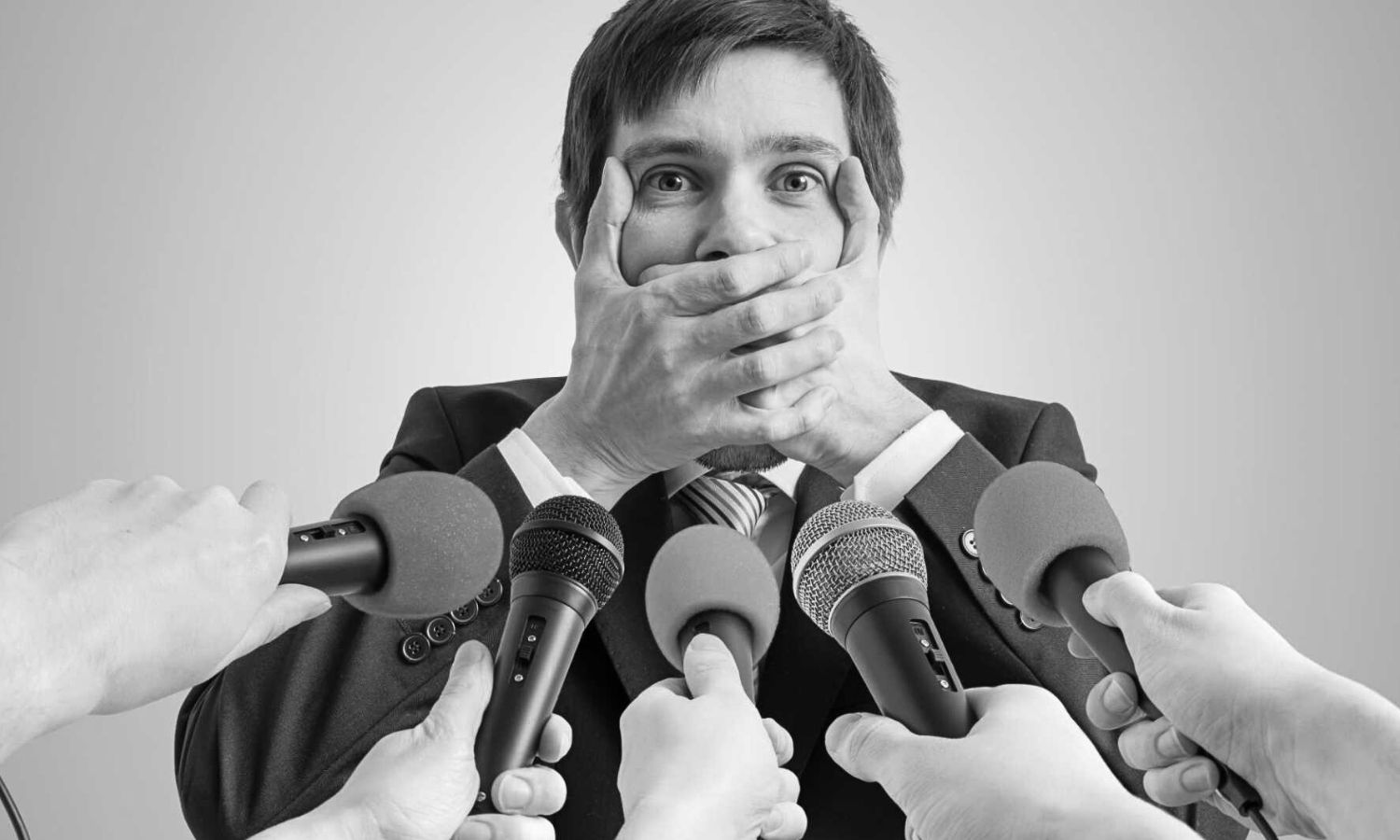
What would you do if the spotlight suddenly turned on you – unprepared, in front of the media?
For many business leaders, it’s not a matter of if, but when.
And sadly, in today’s age – with communication that spreads at lightning speeds – a single misstep can cause severe damage to your corporate brand and personal brand.
So, with such high stakes, it’s a wonder why so many leaders are thrust into the public eye without the media training they need.
The good news? It’s never too late to take control. With the right skills, you can turn any media appearance into an opportunity. For your organisation – and yourself.
Stay calm and composed
First things first, keep your cool.
Challenging questions are designed to rattle you. But your goal is to remain unshaken.
If you feel flustered, take a deep breath before responding. It’s okay to pause for a moment to collect your thoughts – this shows you’re measured and thoughtful.
Remember, a calm and confident demeanour will always work in your favour. And if you’re not ready to answer, buy yourself a little time. Start with statements like:
- That’s an interesting point…
- I can see why you’d ask that…
- That’s a great question. Can you elaborate a bit more…
These types of responses give you a second to compose your thoughts.
Reframe or redirect the conversation
When faced with an uncomfortable or off-topic question, one effective technique is reframing.
This involves acknowledging the question – but then pivot towards something more aligned with your key message. This helps you regain control of the conversation while staying respectful.
For example: If you’re asked about a negative incident, you might say ‘That situation was a challenge, but what’s important now is how we’re moving forward to prevent it from happening again.’
Don’t be afraid to say ‘I don’t know’
It’s a myth that you need to have all the answers.
If a question catches you off guard, it’s okay to admit you don’t have the information on hand. The important thing is to avoid speculating, as this can lead to confusion or miscommunication.
Simply say, ‘I don’t have that information at the moment, but I’ll be happy to follow up with you afterwards.’
This honesty builds trust and ensures you aren’t trapped into giving inaccurate information.
Keep it positive, but don’t evade
It’s tempting to dodge tricky questions, but outright avoiding them can damage your credibility.
Instead, acknowledge the question respectfully and offer a positive spin. Show that you’re listening, but steer the conversation in a direction that highlights your strengths or future plans.
Example: ‘While we faced setbacks in the past, we’ve since implemented new strategies that are already showing great results.’
Practise difficult scenarios
The best way to get comfortable with tough questions? Practise them.
Work with a colleague or media trainer to simulate challenging interviews. The more you’re exposed to these types of questions in a safe environment, the more equipped you’ll be to handle them in the real world.
Maintain confident body language
Your words are important, but your body language speaks volumes too.
When responding to difficult questions, avoid defensive stances like crossed arms or looking away. Instead, maintain eye contact, nod to acknowledge understanding, and keep an open posture. This reinforces your confidence and poise, even under pressure.
Ready to boost your media confidence? Our course Media Mastery for Leaders offers expert guidance to help you sharpen your skills and take on interviews with ease.


